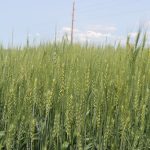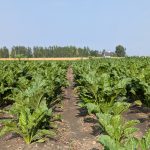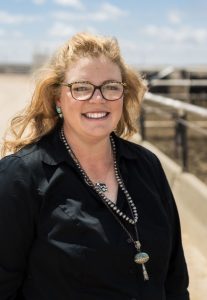National Farm Security Action Plan focuses on Chinese-owned land, business
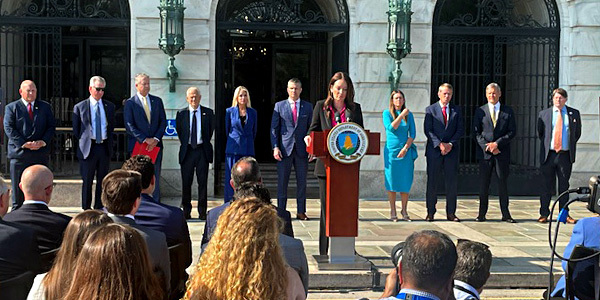
Security-RFP-071425
Agriculture Secretary Brooke Rollins on Tuesday hosted the launch of the Agriculture Department’s National Farm Security Action Plan focused on monitoring Chinese ownership of American farmland and the Chinese role in agribusiness — particularly Chinese ownership of Smithfield, a meat company, and Syngenta, a producer of seed, pesticides and herbicides.
“We feed the world. We lead the world. And we’ll never let foreign adversaries control our land, our labs or our livelihoods,” Rollins said to an audience of reporters and Trump supporters on the steps of the USDA headquarters.
Rollins announced what she called a seven-point plan to secure American agriculture, including requiring “total transparency” on foreign land purchases and “tougher penalties,” apparently for inaccurate reporting. But the federal government’s ability to address land and business ownership is limited because land purchasing is a state matter and companies are bought and sold on the open market.
USDA said in a news release, “Recent events highlight the critical need for this action. Last month, the U.S. Department of Justice charged foreign nationals, including a Chinese Communist Party member, with smuggling a noxious fungus into the United States — a potential agroterrorism weapon responsible for billions in global crop losses. The scheme involved a U.S. research lab and highlighted a disturbing trend: America’s enemies are playing the long game — infiltrating our research, buying up our farmland, stealing our technology, and launching cyberattacks on our food systems. These actions expose strategic vulnerabilities in America’s food and agriculture supply chain.”
Defense Secretary Pete Hegseth, Attorney General Pam Bondi and Homeland Security Secretary Kristi Noem joined Rollins in making the case that foreign adversaries are endangering American agriculture. In answer to a reporter’s question, Rollins said that Secretary of State Marco Rubio and the Centers for Disease Control had both been consulted about the plan, although they were not represented at the event. Rollins also said it was too bad that Health and Human Services Secretary Robert F. Kennedy Jr. was not present because everyone attending was getting so much Vitamin D due to the hot sun.
MILITARY BASES
The officials stood near maps showing military bases near which the Chinese own farmland. In total, the maps said, the Chinese own 265,000 acres of farmland.
Hegseth said he wants to know who owns the land around U.S. military bases. Bondi said she will investigate foreign chemicals coming into the United States, including from Mexico.
Noem said that when she was governor of South Dakota, the legislature passed a law prohibiting foreign ownership and noted that the Chinese do not own any land in South Dakota.
Gov. Sarah Huckabee Sanders, R-Ark., noted that under her leadership Arkansas forced Syngenta to sell its land in Arkansas.
White House aide Peter Navarro said that the Chinese purchase of Smithfield had “troubled me” when it took place, although at the time of the sale in 2013 — when Sen. Debbie Stabenow, D-Mich., raised the question of the Chinese getting hog genetics that had come from U.S.-funded research — Republican members of the Senate Agriculture Committee and the American owners of Smithfield defended the sale.
Navarro also said the United States allowed the Chinese to buy Syngenta, although that company was Swiss before the Chinese bought it.
Gov. Bill Lee, R-Tenn., said Tennessee has prohibited Chinese ownership of farmland. Gov. Jim Pillen, R-Neb., said when Syngenta executives asked him for a meeting he turned them down.
Sen. Tommy Turberville, R-Ala., who is running for governor, said that American agriculture had declined under the “socialist, communist Biden administration.” If farmers cannot make a living, they have no choice but to sell their farmland to the Chinese or others, Tuberville said.
Tuberville also said the agriculture secretary should be a member of the Committee on Foreign Investment in the United States, the interagency group that makes decisions about controversial foreign investments in the country. Shortly thereafter, Rollins said she would be joining CFIUS.
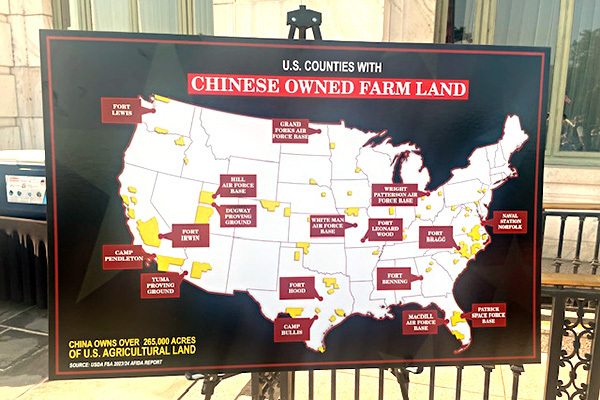
BIOTERRORISM
Sen. Roger Marshall, R-Kan., said he is more worried about Chinese involvement in agribusiness and the agricultural supply chain than he is about farmland ownership. Marshall said his biggest concern is bioterrorism.
Rollins said that there will soon be an executive order to “claw that back,” which seemed to be a reference to Chinese ownership of Smithfield and Syngenta.
Both Smithfield and Syngenta defended themselves in statements after the event, although each noted that it is selling farmland.
Smithfield said, “Smithfield Foods is a publicly traded U.S. food company listed on the NASDAQ stock market under the symbol SFD. Our American management team is based in Smithfield, Va., where our company’s headquarters have been located since our founding in 1936. We employ approximately 33,000 people in the U.S. and partner with thousands of American farmers.
“Our products are produced in the United States, and the vast majority are consumed in the U.S. We primarily export offal to China, cuts of the pig that are not typically consumed in the U.S.
“We are a majority-owned subsidiary of Hong Kong-based WH Group Limited, a publicly traded company with shares listed on the Hong Kong Stock Exchange and investors from around the world, including the United States. WH Group is not a Chinese state-owned enterprise and does not undertake any commercial activities on behalf of the Chinese government.
“The U.S. Treasury Department’s Committee on Foreign Investment in the United States or CFIUS approved the acquisition of Smithfield by WH Group in 2013.
“Today, we own approximately 85,000 acres of American farmland — less than 1/100th of 1% of all U.S. farmland — and that number continues to decline. Last year, we sold approximately 40,000 acres of farmland.”
Syngenta, which was formed from the merger of several other agricultural companies, said it is “one of the world’s oldest and largest global agricultural companies. Our global headquarters are in Switzerland, and we are a multinational company with multiple Americans in leadership positions. Syngenta is already in the process of selling its remaining farmland in the U.S. and currently owns less than 1,000 agricultural acres in the U.S., acreage that is the equivalent of roughly yhree Iowa farms. This land has been used to ensure that products are developed and tested locally, meaning American farmers have access to the products best suited to their farm’s needs. For example, testing soybeans in Wisconsin does not guarantee they will be the best option for soybean producers in Georgia — they need to be tested in that location.
“Syngenta’s land holdings and business acquisitions have been examined by the Committee on Foreign Investment in the United States through several administrations, including the previous Trump administration. Syngenta regularly discloses its real estate interests to CFIUS to maintain transparency and operates in accordance with all applicable laws and regulations. We are proud to have been a trusted partner to American farmers for more than 50 years.
“Our mission is to help American farmers grow safe and plentiful food, and to strengthen rural communities across the country.”
Syngenta also said, “Additional constraints on Syngenta’s ability to operate in the U.S. will reduce farmer choice and likely increase input costs for U.S. farmers.”
The company noted it “operates major manufacturing, research and development, and distribution facilities in more than 20 states, employs more than 4,000 people across more than 40 states, the District of Columbia and Puerto Rico with an annual payroll of approximately $510 million and purchases approximately $2 billion in goods and services in the U.S.”
The America First Governors Council sent Rollins a letter supporting the USDA National Farm Security Action Plan.
The current and former governors, all Republicans, described the initiative as a “decisive and long-overdue response to the Chinese Communist Party’s coordinated threat to America’s farmland, food supply, and national sovereignty.”
The America First Policy Institute was founded by Rollins.

